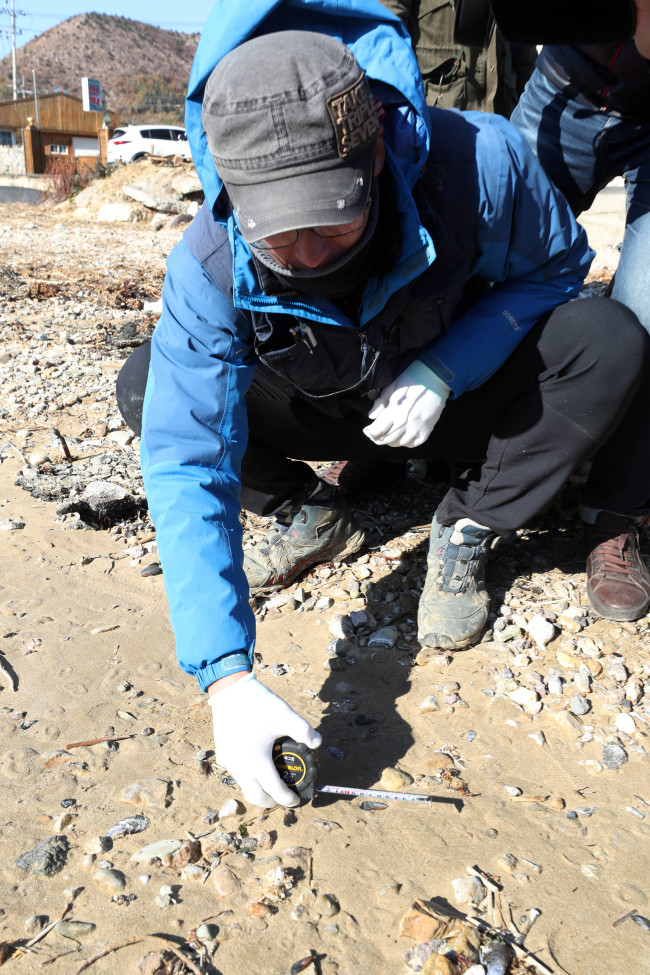Government speeds up earthquake preparedness after Pohang
By Bak Se-hwanPublished : Nov. 19, 2017 - 15:29
A 5.4 magnitude earthquake and a series of aftershocks that struck off the southeastern city of Pohang, North Gyeongsang Province, last week had damaged some 2,000 private homes and injured dozens as of Sunday, according to the Ministry of Interior and Safety.

A total of 1,118 people have been displaced and are living in 13 temporary shelters, according to the ministry’s morning briefing, while some 20,000 from the military, police and fire departments and public volunteers have mobilized for restoration work. So far 82 people have been treated for injuries at hospitals. Of them, 15 remain hospitalized.
The country’s second-strongest earthquake on record also left cracks and damage in walls at 110 elementary schools and 106 middle and high schools in the coastal region, although no deaths were reported due to the quake.
Education authorities also postponed the country’s national university entrance examination, originally slated for Thursday, by a week on safety concerns. The annual exam is the focus of 12 years of education leading to university.
The recent disaster, followed by last year’s 5.8 magnitude quake in nearby Gyeongju, raises public concerns over safety in a country that rarely experiences tremors as geologists warn of bigger seismic activities to come. The Pohang quake occurred at around 2:29 p.m. on Wednesday, sending tremors as far as to the capital Seoul, more than 300 kilometers away.
To allay public concerns, Rep. Cho Jeong-sik of the ruling Democratic Party of Korea, who heads the parliamentary land, infrastructure and transport committee, submitted a legislative proposal to improve the earthquake resistance of age-old infrastructure, buildings and transportation systems nationwide.
The bill calls for government monitoring of infrastructure facilities aged 30 years or over to upgrade the nation‘s quake preparedness.
“Subways and highways that were constructed more than 30 years ago during the industrialization period are not functioning well, and have serious security concerns. It is time to shift our response mode from the current passive one to a proactive one against age-old infrastructure,” Cho said.
By Bak Se-hwan (sh@heraldcorp.com)





![[Herald Interview] 'Amid aging population, Korea to invite more young professionals from overseas'](http://res.heraldm.com/phpwas/restmb_idxmake.php?idx=644&simg=/content/image/2024/04/24/20240424050844_0.jpg&u=20240424200058)











![[KH Explains] Korean shipbuilding stocks rally: Real growth or bubble?](http://res.heraldm.com/phpwas/restmb_idxmake.php?idx=652&simg=/content/image/2024/04/25/20240425050656_0.jpg&u=)

